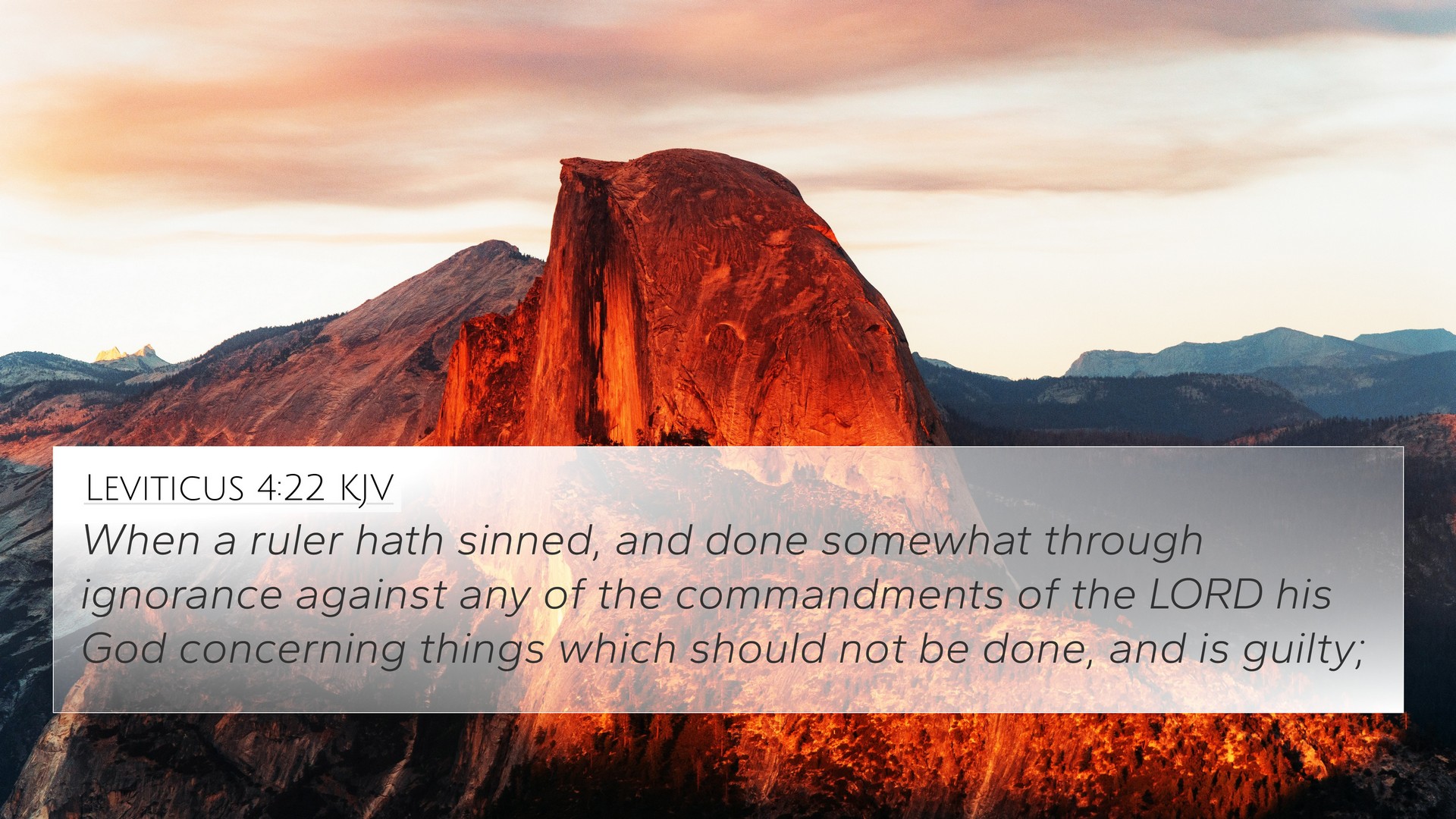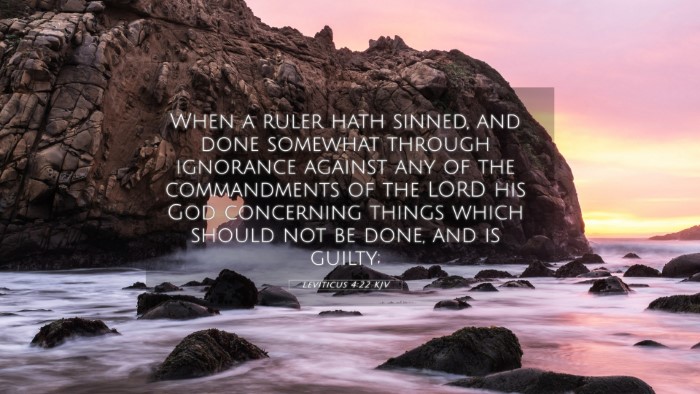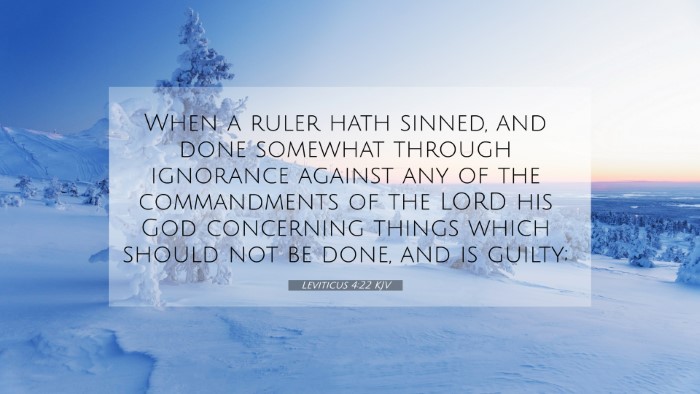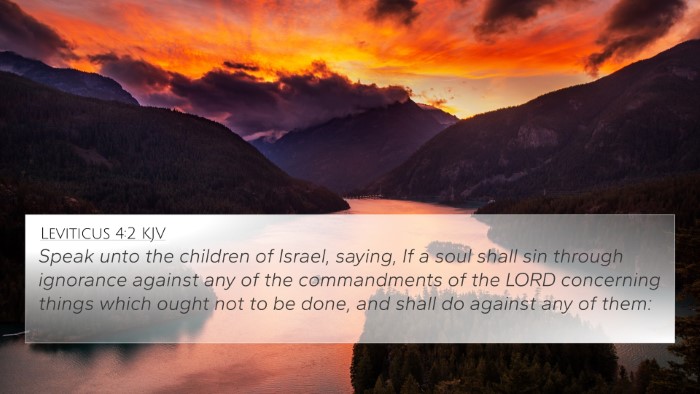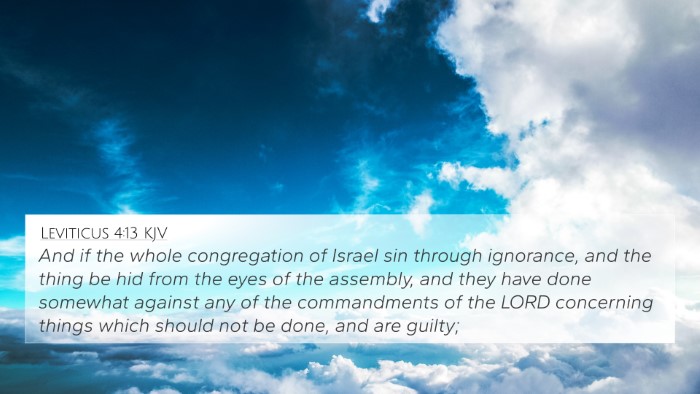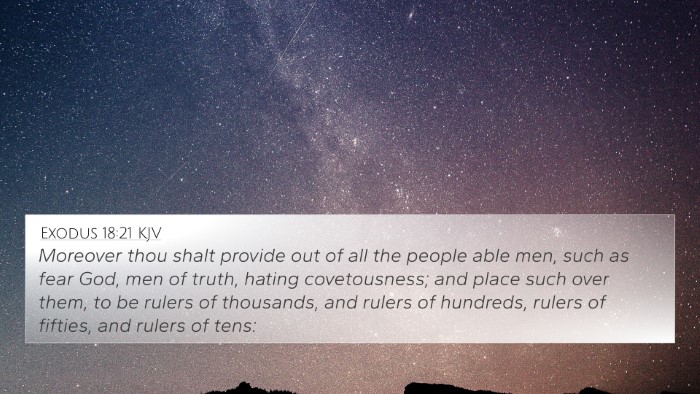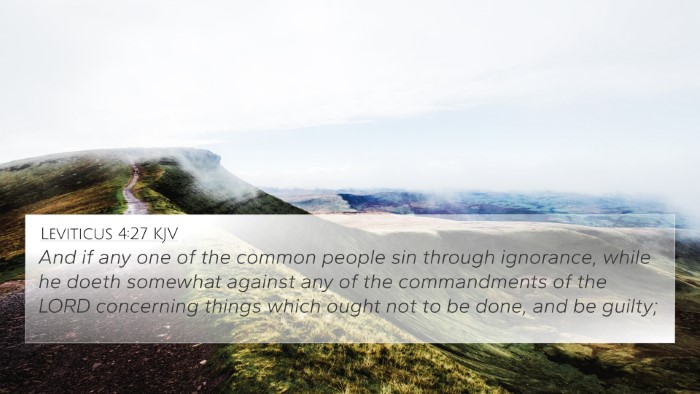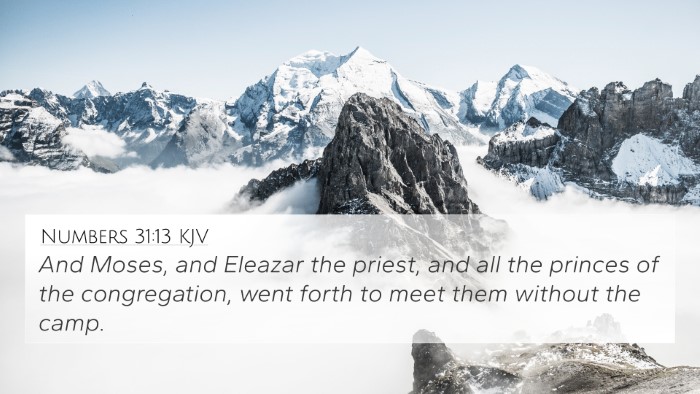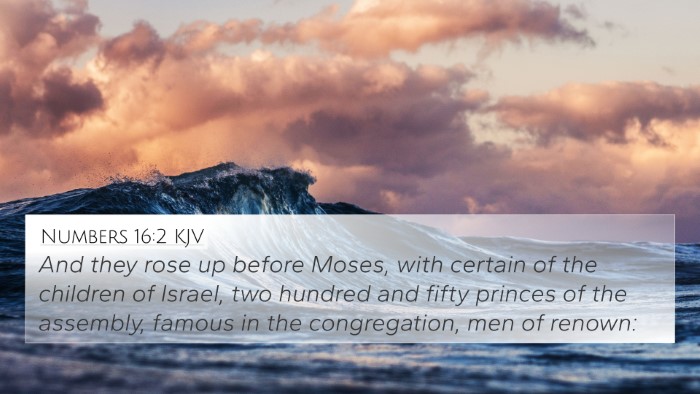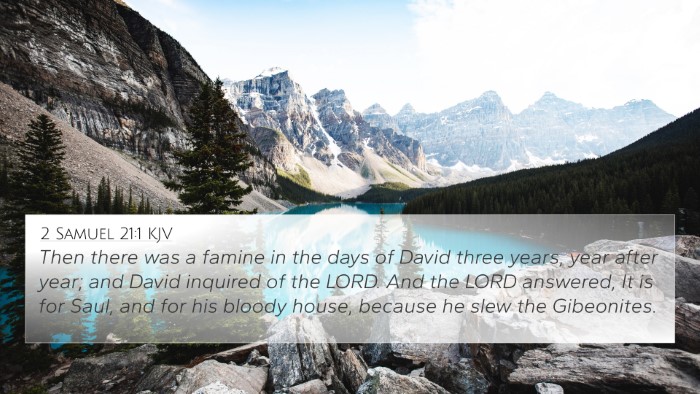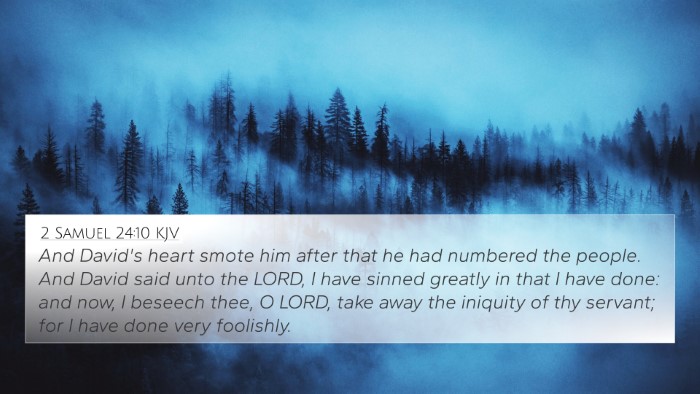Understanding Leviticus 4:22
Leviticus 4:22 states:
"If a ruler has sinned and done something unintentionally against any of the commands of the Lord his God, he is guilty."
This verse is part of the broader context that addresses sin offerings and the sacrificial system established for the Israelites. It underscores the significance of unintentional sins and the responsibility of leaders (rulers) in the community.
Commentary Insights
Matthew Henry
Henry emphasizes that even those in positions of authority are not above the law of God. A ruler's unintentional sin is still significant, highlighting that leaders hold responsibility for their actions. Their sin requires atonement, demonstrating the principle that leadership carries weighty implications for the community's standing before God.
Albert Barnes
Barnes notes that the Lord's commands are paramount, and every individual, including rulers, must heed them. He outlines how this passage speaks to the seriousness of sin, even when committed unknowingly, and the necessity of bringing a sin offering to atone for that sin. This reflects the overarching theme of God’s holiness and the necessity of reconciliation.
Adam Clarke
Clarke discusses how unintentional sin can still lead to guilt, indicating that ignorance of the law does not exempt one from the consequences. He connects this principle with New Testament teachings, suggesting that even unintentional sins require acknowledgment and repentance, emphasizing God's desire for integrity and holiness among His people.
Cross-References to Leviticus 4:22
- Numbers 15:22-29 - Discusses unintentional sins committed by the entire congregation and how atonement is required.
- James 3:1 - A warning about the responsibility of teachers and leaders, relating to the importance of accountability in one's actions.
- 1 John 1:8-10 - The necessity of confession of sins, acknowledging that everyone has sinned, including leaders.
- Psalms 19:12 - Reflecting on hidden faults, emphasizing the importance of awareness regarding one’s transgressions.
- Hebrews 9:7 - Discussing the high priest’s role in atonement for unintentional sins.
- Luke 12:48 - To whom much is given, much will be required; this aligns with the heightened responsibility of leaders.
- Romans 5:13 - Sin is not counted where there is no law, yet showcases God’s justice in dealing with unintentional wrongdoings.
- Galatians 6:1 - The community's role in restoring those who err, reflecting the importance of accountability.
- Exodus 28:42 - Instructions for the priests concerning sin offerings that also contextualizes the need for atonement.
- 2 Samuel 24:10 - David's response to God's anger due to unintentional sin highlights the need for atonement for mistakes.
Thematic Connections
Leviticus 4:22 not only serves as a reference about unintentional sin, but it also establishes thematic connections across the Scriptures:
- Responsibility of Leaders: A recurring theme that leaders are accountable for their actions (James 3:1, Luke 12:48).
- Sacrifice and Atonement: Systematic approach to unintentional sins requiring offerings (Numbers 15:22-29, Hebrews 9:7).
- God’s Holiness: A consistent reminder that God’s standards remain unchanged, and ignorance does not lessen one’s accountability (Romans 5:13, Psalms 19:12).
- Confession and Repentance: The necessity of acknowledging sin in order to receive forgiveness (1 John 1:8-10, Galatians 6:1).
Cross-Referencing Biblical Texts
This verse is an excellent case study in cross-referencing as it can be linked to numerous other scriptures that deal with sin, accountability, and the sacrificial system. Using tools like a Bible concordance or a cross-reference Bible study guide can enhance understanding and provide deeper insights into how various scriptures interconnect, enriching the reader's knowledge of Biblical themes. Conducting a comparative Bible verse analysis will reveal how these scriptures inform one another, creating a profound narrative that is crucial for understanding God’s intention behind the law.
Conclusion
In summary, Leviticus 4:22 serves as a critical reminder of the gravity of sin—even when unintentional—especially for those in leadership. By utilizing cross-references, one can explore deeper connections throughout the Bible that illuminate the significance of atonement, integrity, and divine accountability, enhancing one’s grasp of scripture as a whole. The comprehensive Bible cross-reference materials available today make it possible to immerse oneself in this intricate web of divine instruction.
